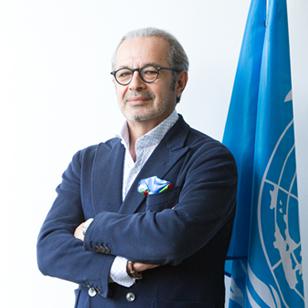Entrepreneurship in the UN
Twenty-five years ago when I first joined the UN, the word “entrepreneurship” was not part of my lexicon. I was a product of an educational system that trained me to be a good politician, a diplomat, or an international civil servant, but never a businessman. When couple of times I flirted with the idea of learning about the world of business by taking courses on marketing or management, I quickly realized that business was not part of my DNA. However, today and couple of decades later, my entire professional genetic disposition has changed to embrace certain business principles as the centrepieces of my life as a UN manager. The truth is that I’m really enjoying my professional transition to become an entrepreneur UN professional and here is why.
To contextualize my journey; I evolve as a professional when spending money and not making it was the main objective of my department, and the organization at large. This was based on the thinking that if you don’t spend your allocated budget, then expect less for the year after. Of course not spending your budget had also certain stigma attached that meant lack of new ideas translated into projects. Whatever the reason, this meant a big push at the end of the fiscal year to spend. This practice is still alive in many circles and does not pertain only to the UN. This is prevalent in most public sector organizations be it national or international.
After years of spending my funds on good ideas (and sometimes bad ones), I moved to my current job at the United Nations System Staff College, where the old formula no longer applied. In this job, there was no budget to spend but it was rather the contrary, making money was the objective. Of course, the UN is not the private sector where making a profit is the ultimate goal. Here recovering our costs is our financial guiding post.
While financial stability is among our top priorities, we have identified three broad drivers in our four-year strategic plan and they include contributing to: 1) the current UN reform; 2) 2030 Sustainable Development Agenda, and 3) Sustaining Peace. What this means is that everything we do must be directly in line with these three areas, while financially safe and sound. We do not make profits from our work but we certainly do our best to recover our expenses.
The College is comprised of over 80 hardworking and smart people with lots of great ideas. We are all aware of the power of ideas. We all work for the UN where many great ideas have and continue to come to make the world a better place for all. But we are all also humble enough to realize that as the saying goes: “ideas are a dime a dozen” and what matters is how to translate an idea into practice and make it live for its intended life span.
Every day we use terms that twenty plus years ago I would have never imagined to use working for the UN. The market, market research, the client, client satisfaction, business intelligence, investors, product development, cost-saving measures, and financial sustainability have become parts of our regular day speak. This has not been an easy journey, but our bottom line shows that it’s working.
With a severe financial drought circling over the world of multilateralism, to survive and grow we had no other choice except to become entrepreneurs. Despite my old allergic reactions to anything that had to do with business management, today I’m actually enjoying the ride. I highly suggest you try it, if you have not done it yet. Think of it as a bitter medicine you have to take it to overcome your health problem. At first, it may taste bad, but you appreciate it once you are cured. The good thing about it is that you can take it regularly as a preventive measure. This has been a major culture change in professional life, and yes it did require a serious shift of mind set!
